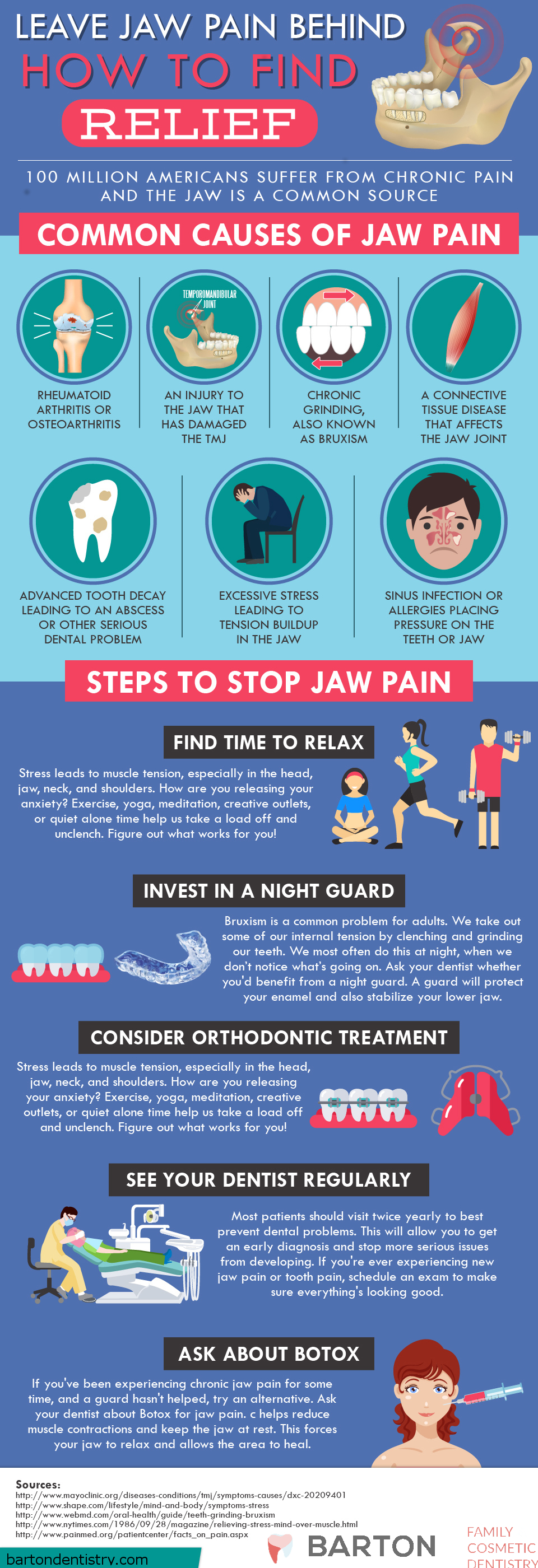Experiencing headaches when you wake up in the morning? Finding your jaw feeling exhausted and hard to use, or your ears feeling sore? Noticing facial pain? These symptoms could all add up to a jaw disorder.
We all know how frustrating and draining head pain can be. It prevents you from working as hard as you like and interferes with concentration, and also causes irritability and can even damage your relationships. If you experience frequent headaches and also notice jaw pain, it’s not a bad idea to meet with a TMJ dentist. Learning more about your jaw and how it’s behaving will help you pinpoint the real root of the problem.
Check out our TMJ pain infographic to learn more about what may be causing your discomfort.
Common Causes of TMJ Pain

How Do I Know Whether My Headaches Are Related to a TMJ Problem?
Look for symptoms like the following:
- Jaw clicking, popping or locking
- Jaw feeling exhausted or difficult to move
- Jaw pain, tenderness or swelling
- Flat patches on the bite surfaces of teeth from grinding
- Receding gums due to grinding
- Difficulty chewing, biting or speaking due to overtired jaw
- Pain radiating out from the jaw toward your ear and the rest of your face
If you’re experiencing TMJ problems, there are many ways to try to move forward. Treating jaw pain requires a wide variety of methods, and what works for one patient may not be right for you. That’s one reason why it’s so important to see a TMJ dentist when you’re experiencing chronic jaw or facial pain. They will be able to evaluate your bite, jaw and lifestyle and recommend the appropriate course of action.
Treatment can range from something as simple as home exercises and stress relief to a custom TMJ splint or Botox Therapeutic. Meet with Dr. Barton today to learn more about what’s best for your needs.
Dalton General Dentist | General Dentistry Dalton | Dalton General Dentistry
Related Articles
[caption id="attachment_850" align="aligncenter" width="500"] When is it time to drop everything and get help?[/caption] Tooth pain can be a real...well...pain. But sometimes it’s hard to know whether your discomfort is...
We all want that bright, white smile to feel our most confident selves. But whitening your teeth shouldn’t come at a cost to oversensitivity and harming your enamel. Whitening your...
Getting your kids to eat a healthy balanced diet is no simple task, but what your children eat and drink can have a big impact on their oral health. Packing...





